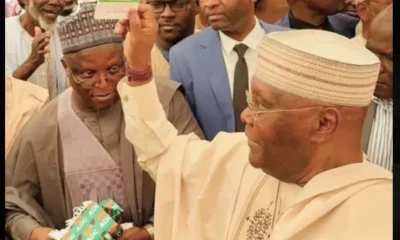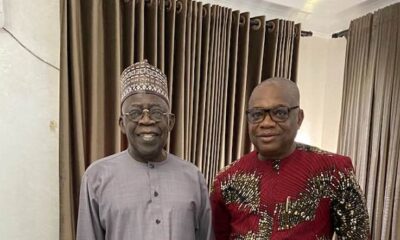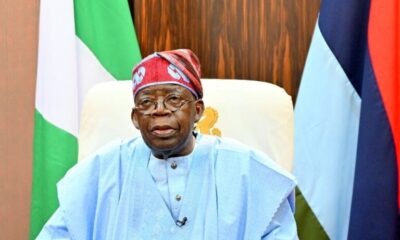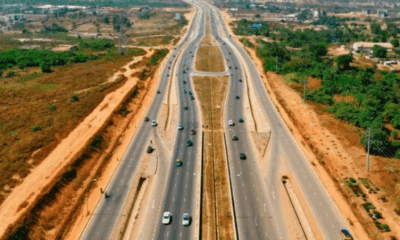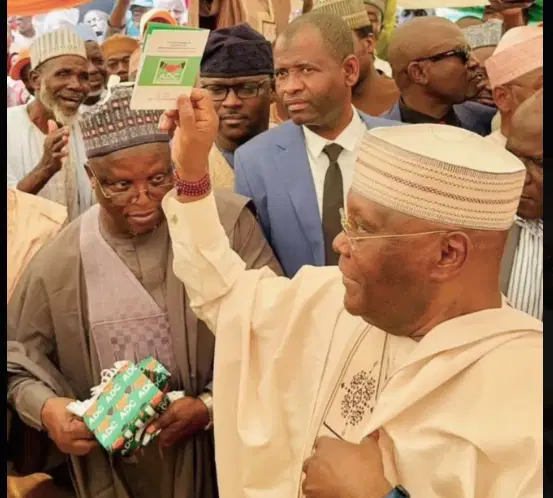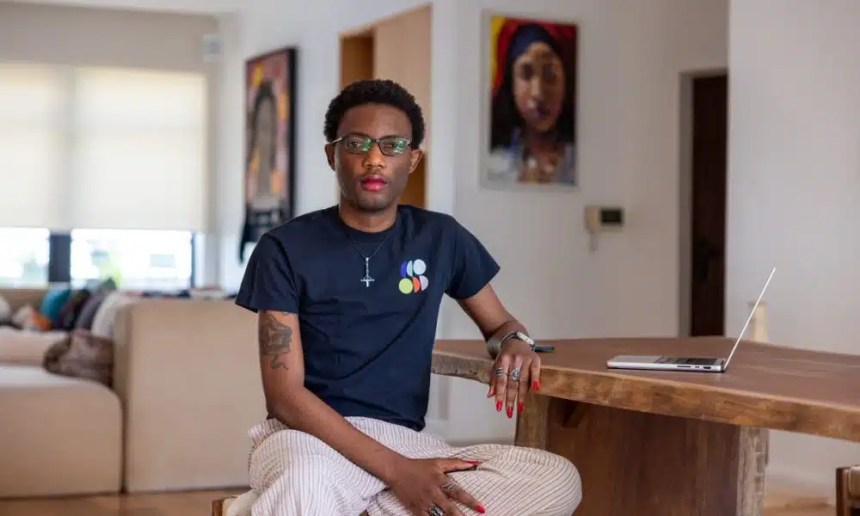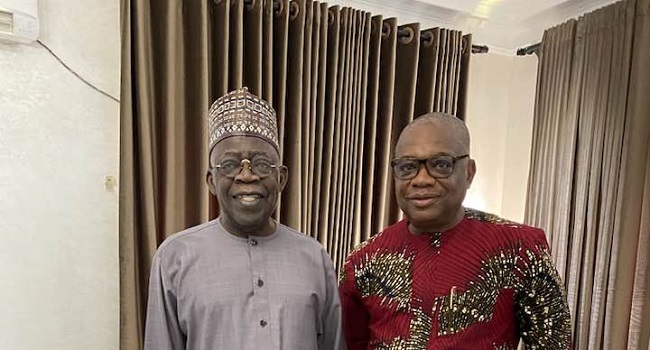President Bola Tinubu on Tuesday said Nigeria stands to benefit about $2.7bn annually by implementing the Single Window Project.
He added that the project will spare the nation at least $4 billion a year that would have been lost to convoluted bureaucracies and corruption that impeded trade efficiency.
This was made public by Tinubu during the launch of the National Single Window project, a new digital trade compliance programme, in the Council Chamber of the State House in Abuja.
A cross-government website called the Single Window project would help with trade by providing a single gateway through which Nigerian and foreign trade actors can access a comprehensive array of information and standardised services from various Nigerian authorities.
The initiative, Tinubu said, would expedite cargo movement and optimise inter-African trade, thereby facilitating $2.7bn worth of annual paperless trade.
While noting that the economy can no longer stomach $4bn annual losses, the Nigerian leader directed the Presidential Steering Committee on the National Single Window Project to “Dismantle all block webs” in the way of trade efficiency.
This way, Nigeria would join the ranks of Singapore, Korea, Kenya and Saudi Arabia which have experienced significant improvement in trade efficiency after implementing a single window system, the president argued.
He affirmed, “We cannot afford to lose an estimated $4bn annually to red tape, bureaucracy, delays and corruption at our ports.
“The benefits of this initiative are immense. The paperless trade alone is estimated to bring an annual economic benefit of around $2.7bn US dollars.
“Countries like Singapore, Korea, Kenya and Saudi Arabia have already seen significant improvement in trade efficiency after implementing Single Window Systems. It is time for Nigeria to join their ranks and reap the reward of a streamlined, decentralised trade process.”
Tinubu lamented that although Nigeria has immense potential – having been blessed with people of resilience, creativity, and unwavering spirit of enterprise – “for far too long, our economic growth has been hindered by the complexities and inefficiencies in our trade processes.”
“Today, we say that there should be no more,” he assured.
He described the national single window as a game changer that will revolutionise the conduct of trade in the country, “by simplifying government trade compliance through a digital platform, we will unlock the doors to economic prosperity and all other opportunities.”
The President also noted that the National Single Window will prevent revenue leakage and facilitate effective trade.
“By doing so, we will create a more transparent, secure and business-friendly environment that will attract investment and spur economic growth,” he added.
He assured the newly inaugurated steering committee of his full support admitting that implementing the National Single Window “will not be an overnight process.”
“It requires dedication, collaboration and a phased approach. But I assure you, my fellow brothers and sisters, that we are fully committed to seeing this project through.
“We will work tirelessly to ensure its success by engaging all partner agencies and stakeholders to create a system that works for every one of us,” Tinubu stated.
The President charged the committee to get rid of any obstacles in their way, expressing his readiness to listen to new ideas to make the initiative succeed.
“Dismantle all block webs along your way. I will be ready to listen to conversations, your discoveries, to any problem-solving areas that will make the Single Window a big success,” he remarked.
Tinubu who serves as the Chairperson of the ECOWAS Authority of Heads of State argued that the Single Window Project transcends Nigeria.
Therefore, by linking its system with those of other African nations, “we will expedite cargo movement and optimise inter-Africa trade,” he said.
He called on all Nigerians to embrace the initiative with open arms appealing, “Let us work together as one nation to make the National Single Window a resounding success.”
“This initiative is a testament to our commitment to regional integration and our belief in the power of collaboration.
“Let us show the world that Nigeria is ready to take its rightful place as one of the leaders in global trade,” the President urged.
Briefing State House correspondents afterwards, Managing Director of the Nigerian Ports Authority, Bello Koko, affirmed that imports would be cleared at all seaports within 24 hours, even though it takes 72 hours in neighbouring countries.
Koko said the Single Window initiative will cut back the amount of paperwork involved in transactions for import and export as the relevant government agencies will now share information through a unified platform.
“So, for clearance, the target is 24 hours. Of course, we know what is obtainable in neighbouring countries, it’s 48 to 72, but the target is actually 24 hours,” he asserted.
Koko said key shipment details such as type, year of manufacture, Form M, and cargo weight, among others will be unified for seamless sharing across government agencies.
He explained, “So, we are trying to unify this information in such a way that you fill as little as possible and all related government agencies that are in the value-chain of import or export processing, should be able to pick the information they need from there. So, you can see the picture here. We are reducing the current numbers.
“The second thing is it’s not going to be printed. So, the efficiency it brings here is that you can fill it in your bedroom and your offices.
“Shipping lines, freight forwarders, Nigerian Customs, NPA and so on should be able to process your requests, whether it’s in terms of import or export. That is the target.”
Mr. Tola Fakolade is the head of the project secretariat. Members include representatives of the Federal Ministry of Finance, Marine and Blue Economy, the Federal Ministry of Transportation, the Federal Ministry of Trade and Investment, the federal Inland Revenue Service, the Nigerian Customs service and representatives of the Nigeria Sovereign Investment Authority.
Others are representative of the Central Bank of Nigeria, National Agency for Food and Drug Administration and Control, Standards Organisation of Nigeria, Nigerian Maritime Administration on Safety Agency, Nigerian Ports Authority and Presidential Enabling Business Environment Council.
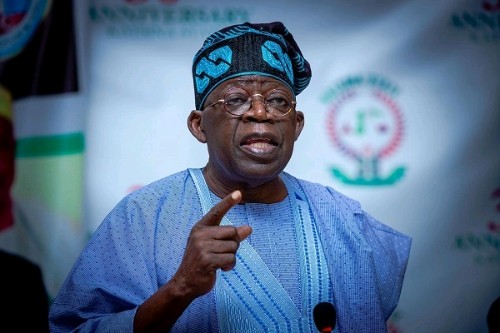

 BIG STORY3 days ago
BIG STORY3 days ago
 BIG STORY4 days ago
BIG STORY4 days ago
 BIG STORY4 days ago
BIG STORY4 days ago
 BIG STORY4 days ago
BIG STORY4 days ago
 BIG STORY4 days ago
BIG STORY4 days ago
 BIG STORY3 days ago
BIG STORY3 days ago
 BIG STORY4 days ago
BIG STORY4 days ago
 BIG STORY4 days ago
BIG STORY4 days ago






